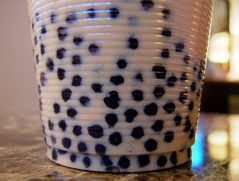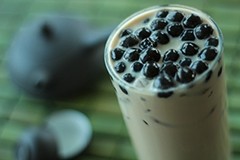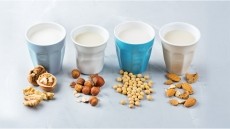German risk assessor BFR warns of Taiwanese 'bubble tea' choking risk

Meanwhile, a new study from Germany’s University of Aachen has reported finding cancer-linked substances in the balls contained in drinks sold by an unnamed nationwide bubble tea franchise.
Germany is in the vanguard of the bubble tea trend sweeping Europe, and until now specifically confined to the foodservice sector, since it is freshly prepared.
Using a tea base, the sweet drink is often fruit flavored, and also includes small starch balls (bubbles) roughly 10-15mm in diameter, filled with a sweet liquid.
Hubble, bubble, tea and trouble?
Bubble tea is drunk through a broad straw that also allows consumers to suck in the ‘bubbles’, a spokesman for the BFR told BeverageDaily.com: “The bubbles are the right size – similar to nuts – to enter the gut and then the lung area. They could cause lung inflammation in children.”
The spokesman said the BFR was investigating press reports regarding “bubble tea accidents” but said the institute considered such incidents plausible, and recommended that a clear reference be made to this health risk wherever bubble tea was sold.
Aspiration involves breathing foreign bodies into the lungs, the BFR explained, where sucking objects through a straw presented a risk as the epiglottis was lifted by a vacuum created in the pharyngeal cavity.
When this happened, the trachea (normally closed during swallowing) was opened so that liquids or solids can easily find their way into the lungs.
“In addition to this, it is known that foreign bodies the size of peanuts are easily aspirated into the lungs, especially by children up to four years. The little balls used in bubble tea are of a similar size.”
Styrol found in balls…
The BFR spokesman also responded to a study from the University Hospital Aachen warning that the gelatinous bubble tea balls made in Taiwan contained substances that presented cancer risks.
He told BeverageDaily.com that media reports regarding the study stemmed from the university itself, not the BFR or the relevant surveillance agencies of North Rhine Westphalia.
Sampling balls from drinks bought at an unnamed bubble tea franchise, researchers reportedly found polychlorinated biphenyls (PCBs) such as styrene, acetophenone and brominated substances therein.
“We await more data. We have the same information as you, so we can’t assess these findings. But clearly, these kind of substances are not allowed in food or food material under EU law,” the spokesman said.
“This is why it is important to know how many of these substances have been detected and in what amounts, since you also need to use internationally approved measuring standards.
“We will wait until they give us the data on amounts of styrol and other substances they have detected. So we are waiting – right now we can’t give further expertise on that.”
















